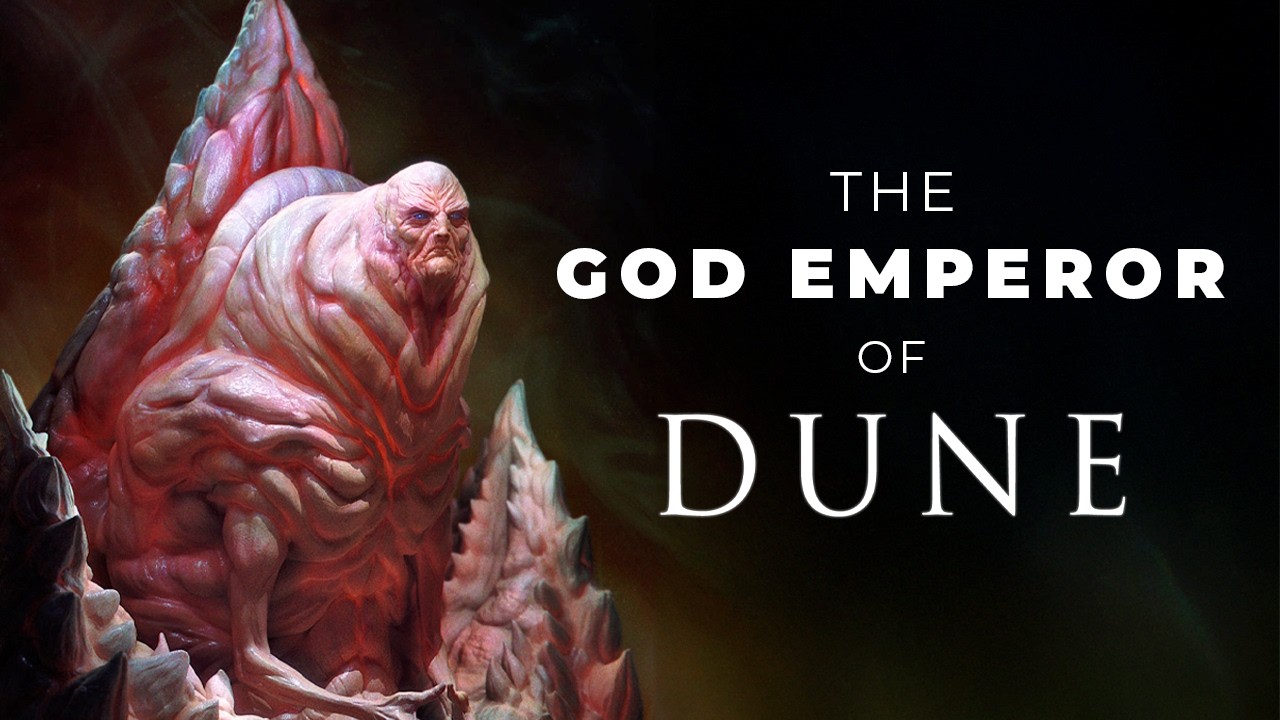
Leto Atreides, the noble duke from Frank Herbert’s iconic “Dune” series, stands as a figure of immense complexity. More than a fictional character, Leto embodies ideals of leadership, sacrifice, and nobility that resonate far beyond the desert sands of Arrakis. Throughout this piece, we will explore seven defining moments in the life of Leto Atreides, dive into his philosophical roots, and consider his enduring symbolism in contemporary discussions about leadership and ethics.
7 Defining Moments in the Life of Leto Atreides
Leto Atreides’ journey is marked by several pivotal events that shape not just his life but the fate of the universe around him. Here are seven defining moments that encapsulate his character:
Leto’s bold decision to accept stewardship of Arrakis signifies a turning point for House Atreides. By moving his family to a harsh and perilous environment, Leto demonstrates a deep commitment to his House and its legacy. This shift sets the stage for an epic conflict with the nefarious House Harkonnen, highlighting Leto’s ambition and political savvy.
From the very beginning, Leto strives to create a harmonious existence on Arrakis. He challenges systemic corruption by advocating for the Fremen, the indigenous people of the planet. His willingness to confront these entrenched power structures paints him as a leader driven by moral conviction, rather than personal ambition— a refreshing narrative in a world often dominated by tyrants.
Leto’s alliance with the Fremen is a defining moment that highlights his unorthodox approach to governance. By treating them with respect and recognizing their strength, Leto shifts the paradigm of ruler-subject relationships. This alliance becomes instrumental in forming a solid power base, profoundly influencing the cultural and political dynamics of Arrakis.
As a father to Paul, Leto’s parenting goes beyond mere guidance. It seeks to instill a sense of duty and ethical leadership in his son, sacrificing his own safety for his son’s future. Here, Leto reflects the broader themes of legacy and familial responsibility, showcasing his nobility through his actions and decisions.
The betrayal Leto faces from trusted allies serves as a sobering reminder of the frailty of loyalty. This moment challenges his principles like never before, catapulting him into a dire situation that tests his resilience. Leto’s response to this betrayal reveals his capacity for adaptability, painting him as a figure whose integrity shines even in the face of adversity.
Leto’s last moments resonate with tragedy and heroism. Rather than succumb to despair, he chooses to confront the forces that seek to annihilate him. In a poignant act of defiance, Leto bites down on a secret poisoned tooth, taking many Harkonnen soldiers with him. His ominous last words, “Here I am; here I remain,” echo his unwavering commitment to his values.
Leto’s death reverberates across the galaxy, instigating a revolutionary spirit among the Fremen and profoundly influencing Paul. His legacy shapes the future of Arrakis and cements his position as a martyr for a larger cause. This ripple effect underscores how Leto’s life and choices continue to impact generations long after his passing.

The Philosophical Roots of Leto Atreides
When examining Leto Atreides, it’s vital to appreciate the philosophical ideals that elevate him beyond a mere noble figure. His life is a tapestry woven with principles of justice, empathy, and accountability.
Leto’s governing philosophy aligns closely with the concept of social contracts. For him, leadership is a shared responsibility, grounded in mutual respect rather than tyranny. This sets the stage for eventual conflicts with power-hungry figures like Baron Harkonnen, symbolizing Leto’s fight for justice.
Leto’s relationship with Arrakis mirrors modern environmental principles. His respect for the planet’s ecosystem not only emphasizes sustainability but also champions the Fremen’s quest for harmony. This unorthodox approach serves as a reminder of the moral duties faced by leaders regarding ecological preservation.
Leto’s readiness to sacrifice for the collective good reflects existential philosophies. His journey elicits tough questions surrounding the price of nobility and the sacrifices inherent in true leadership. This contemplative lens extends the narrative beyond traditional heroism, prompting us to consider our own values in leadership roles.
The Enduring Symbolism of Leto Atreides
Leto Atreides is more than a character; he’s a symbol of moral dilemmas that resonate with audiences today. His journey invites viewers and readers alike to reflect on the qualities we seek in leaders, stressing the importance of empathy, sacrifice, and environmental awareness.
In considering Leto’s life, we’re served a powerful narrative that speaks to modern governance and social responsibility. His decisions force us to examine our values, offering a mirror reflecting back core principles that may shape our world in a meaningful way. Ultimately, Leto Atreides stands as a reminder that leadership grounded in integrity and sacrifice is not just a choice; it’s a necessity for true nobility.
In conclusion, Leto’s narrative encapsulates more than a tale of sci-fi; it fosters dialog around vital social themes, urging us to consider the legacy we leave behind. So, whether you’re a filmmaker, industry professional, or a passionate movie lover, Leto Atreides’ journey may inspire you to reflect on your own ideals and choices in a world that often demands sacrifice for the greater good.

Leto Atreides: The Life and Sacrifice of a Noble Duke
A Noble Heritage
Leto Atreides isn’t just any character in the epic saga of Dune; he represents the pinnacle of noble lineage and honor. Born to the prestigious House Atreides, Leto’s portrayal in both Frank Herbert’s novels and Denis Villeneuve’s adaptations highlights his unwavering commitment to his family and people. Did you know that Leto shares common traits with characters from popular culture, like the adventurous spirit of the Montana Boyz? Just as they navigate their challenges with resilience, Leto faces treachery on Arrakis with grace and strategic brilliance.
Beyond his personal saga, Leto embodies the essence of leadership. He’s known for valuing loyalty over ambition, something that resonates with many, including the lovable and quirky Hotel Transylvania character, Mavis, who also embraces loyalty in her relationships. And just like Leto’s life plays out in the arid deserts of Arrakis, capturing hearts and imaginations, the Farmington Daily times once explored how various mediums, including literature and film, portray concepts of sacrifice and duty through vibrant storytelling.
The Heart of Sacrifice
One of the most striking aspects of Leto Atreides’ character arc is his willingness to sacrifice for the greater good. In a way, this mirrors the classic heroism found in stories like Dragon Ball characters, who risk everything to protect their loved ones and their home. A tragic hero, Leto’s fate is sealed not only by his courage but also by his commitment to his son, Paul, ensuring that the future of their house is secure. This ties back to themes of parenting reflected in various genres—like the relatable chaos seen in a tale about toddler Vans, where parents juggle responsibilities similar to those of the noble duke.
As the saga unfolds, one can’t help but wonder about the deeper motivations behind Leto’s choices—an exploration reminiscent of navigating financial decisions, like figuring out How To draw on home equity. His dedication serves as a poignant reminder for anyone making difficult life choices, be they emotional or financial. Just as people may ponder “how do I get pre-approved for a home loan?” Leto’s situation urges us to think about the costs of our decisions and the legacy we leave behind.
Legacy of Leto Atreides
Though Leto’s story takes some dark turns, his impact endures, much like popular series that evolve through various adaptations and interpretations. For instance, series like Kissmanga show how narratives can be transformed while preserving their core essence, paralleling Leto’s legacy as it continues to inspire across generations. When examining the history of storytelling, it’s clear that the sacrifices made by noble characters like Leto Atreides echo through time, much like the cautionary tales found in Blog del Narco videos, where the costs of ambition and power are starkly highlighted.
Ultimately, Leto Atreides teaches us that nobility transcends birthright. His saga reminds us of the universal truths of courage, loyalty, and sacrifice that appear in tales big and small. Whether you’re captivated by a grand epic or a simple family film, Leto’s story resonates, engraining him as a beacon of virtue in the vast landscape of storytelling and cinema.

Is Leto castrated in Dune?
Yes, in Dune, Duke Leto Atreides is castrated in a ritual combat, which adds to the complexity of his character and his political situation.
Does Leto atreide become a worm?
Leto Atreides II becomes part sandworm as a way to save humanity, merging with the creatures to gain immense power and longevity, but this transformation is also deeply controversial.
Why did Leto not marry Jessica?
Duke Leto didn’t marry Jessica because he wanted to keep his options open for a political marriage with another Great House, and Jessica’s role was primarily to bear a child for the Bene Gesserit’s breeding program.
Why was Leto Atreides so popular?
Leto Atreides was popular because he was seen as a compassionate leader who genuinely cared for his people, creating a strong loyalty among his followers that few other nobles could achieve.
Why did Leto turn into a sandworm?
Leto turned into a sandworm to fulfill a vision of saving humanity as he came to understand the depths of sacrifice required in his family’s legacy and destiny.
Why was Leto Atreides killed?
Leto Atreides was killed due to betrayal from one of his own men, leading to his capture by Baron Harkonnen, who represents the oppressive forces against the Atreides.
What happened to Leto Atreides body?
After his death, Leto’s body is left behind as part of his last desperate act involves a poisoned tooth, and it’s implied that his body would rise above the political consequences as a martyr in the struggle against the Harkonnen.
Why doesn t the worm eat Paul in Dune?
The worm doesn’t eat Paul in Dune because Paul possesses a connection to the spice and the ecology of Arrakis, which allows him to coexist with the sandworms in a unique way.
Why is Vladimir Harkonnen a worm?
Vladimir Harkonnen is not literally a worm; his character has been associated with grotesque traits symbolizing excess and corruption, representing the darker side of humanity.
Did Baron Harkonnen know Jessica was his daughter?
Baron Harkonnen did know that Jessica was his daughter, but he viewed her more as a pawn in his schemes rather than as family, seeing her as a means to an end.
Is Lady Jessica a Harkonnen?
Yes, Lady Jessica is a Harkonnen; she is the daughter of Baron Harkonnen, which adds layers of intrigue and conflict to her character and her loyalties.
Why do Bene Gesserit only have girls?
Bene Gesserit only aim to produce girls as part of their breeding program, which focuses on creating a superbeing known as the Kwisatz Haderach, a male child would disrupt their careful genetic planning.
What is Leto Atreides II weakness?
Leto Atreides II’s main weakness lies in his struggle with his humanity versus his immense power as a sandworm-human hybrid, navigating the burdens and sacrifices that come with that transformation.
What were Leto’s last words in Dune?
Leto’s last words in Dune were “Here I am; here I remain,” symbolizing his acceptance of fate and his determination to face consequences rather than escape.
Why are Paul’s parents not married in Dune?
Paul’s parents aren’t married because their relationship was politically complicated; Leto needed to maintain flexibility for strategic alliances and Jessica was meant to be a concubine for Bene Gesserit purposes.












